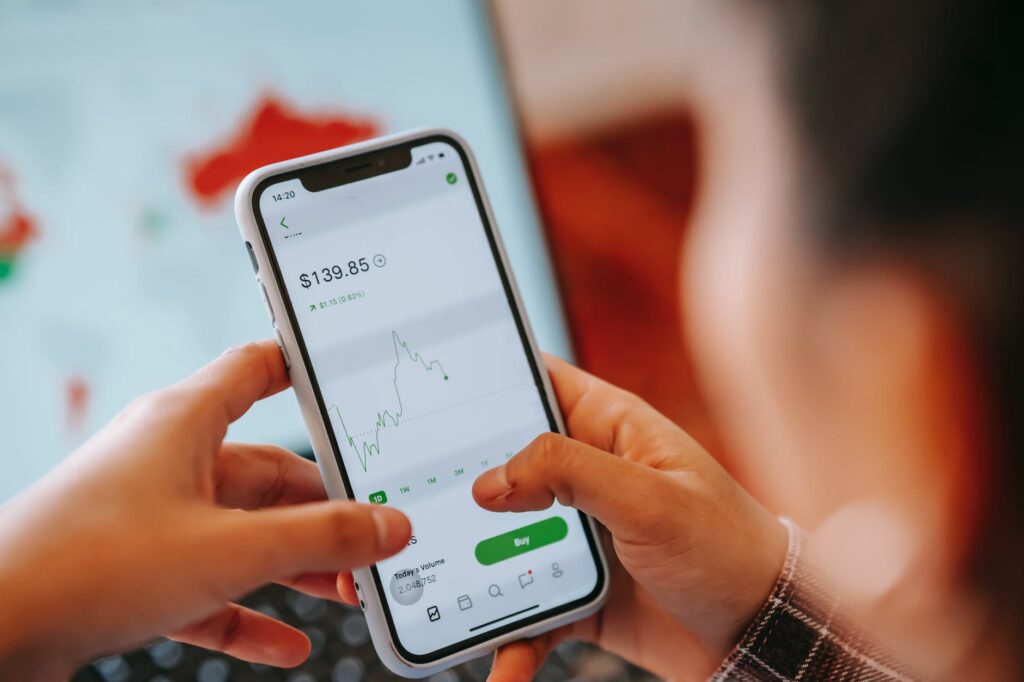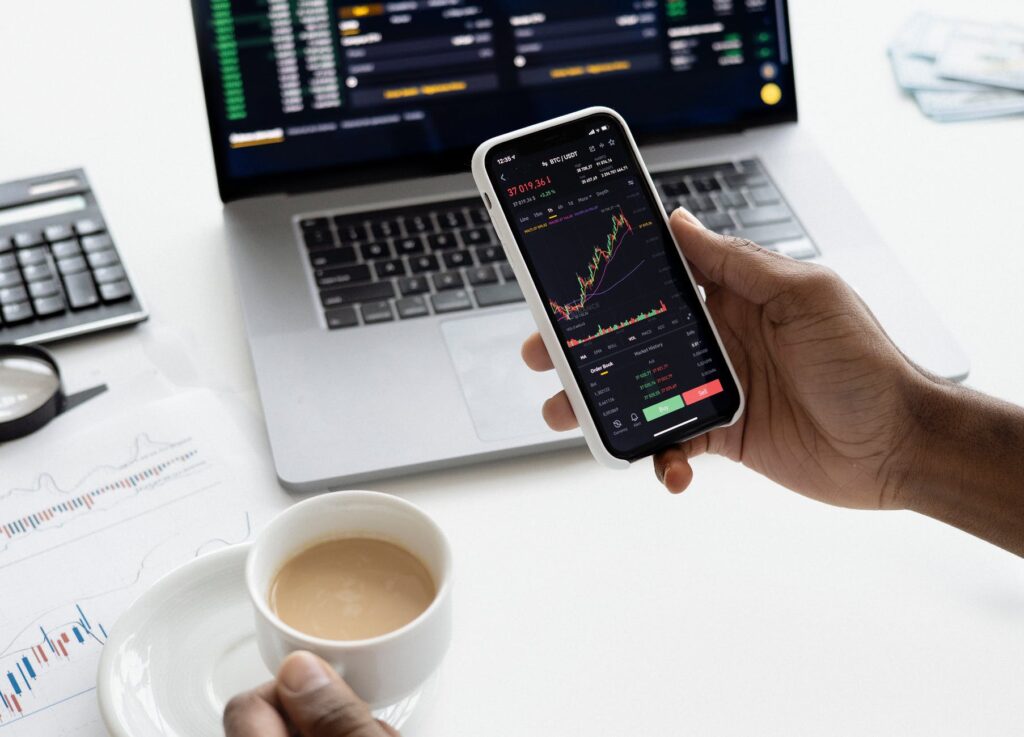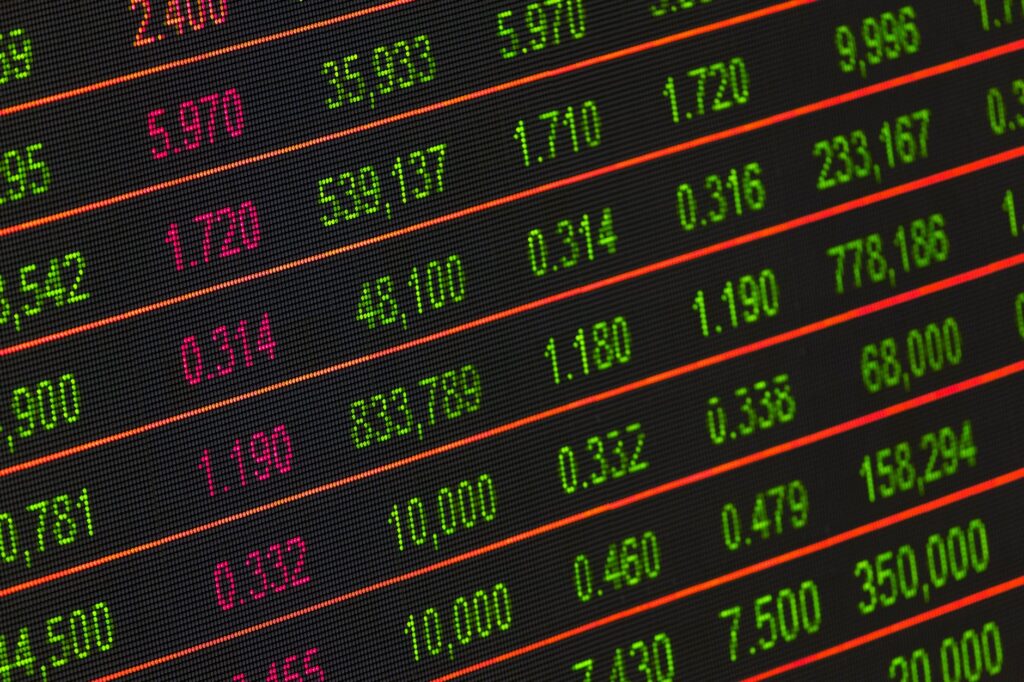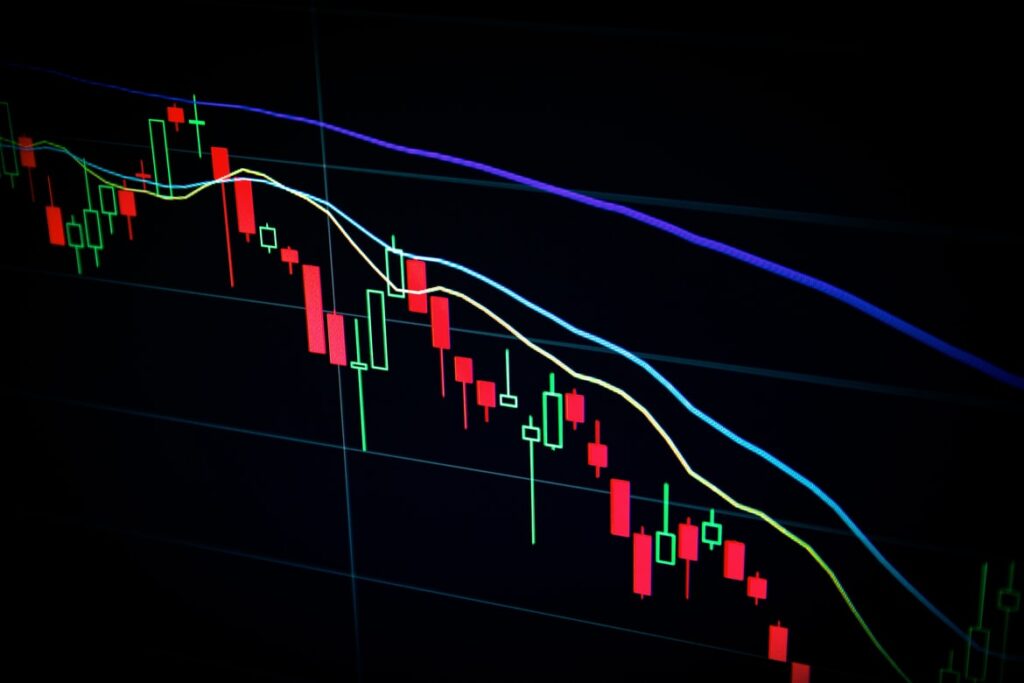Stock market isn’t a single stock market. It is a network of stock exchanges around the globe where investors and traders buy and sell shares of publicly traded companies. The law of supply-demand affects the price of shares.
A share of stock represents a small ownership stake in a public company. The stock’s value is primarily determined by market analysts and stock investors’ expectations about the company’s future earnings.
Trader who think that a company will be successful in raising the price will get it higher than those who think it will fail to do so. Sellers attempt to sell as many shares as possible, hoping to make more than they paid for them. Buyers want to sell the shares at a profit so they get the lowest possible price.
The Stock Market: Where is it?

The United States is home to the Nasdaq Stock Exchange (NYSE) and the New York Stock Exchange. They are combined worth trillions of dollars in market cap, which is the sum of all shares traded on the exchanges. The market capitalization of the NYSE was $28.5 trillion at the close of 2018. The Nasdaq reported its market capital at $9.8 trillion as of the end 2019
Every exchange pairs buyers and sellers differently.
- The Nasdaq market is a dealer marketplace. Investors don’t buy or sell to each other directly. All transactions are done through a dealer.
- To set prices, the NYSE uses an auction system. Investors can place their buy or sell orders before the weekday opening bell at 9:30 a.m. The bid price is paired with the asking price to match the order. The buy and sell orders will continue to flow until 3:50 p.m.
The U.S. financial market is very sophisticated and information about companies can be obtained easily. Investors around the globe trust this transparency. The U.S. stock exchange attracts more investors. This makes it easier for U.S. companies to go public.
What is a Stock Market Index?
Three principal indices track the performance of the U.S. stock markets over time: the Dow Jones Industrial Average (or DJIA) (stock prices for the top 30 U.S. corporations), the S&P 500, (stocks of 500 large-cap U.S companies) and the Nasdaq. Many markets have their own indices that track different components and segments. The Russell 2000, for example, reports on 2,000 small-cap businesses.
Stock exchanges and indices are also available in other countries. London, Tokyo Shanghai, Hong Kong and Euronext are the five largest stock exchanges. Each exchange is followed by an index. Global indices track stock performance across all borders. The MSCI Index, for example, tracks stocks in emerging markets such as Brazil, India, China, and India.
Why should you invest in the stock market?

The stock market is a contributor to the U.S. economic growth. Stocks are a good investment for investors who believe that the economy will grow. Strong economies help companies increase their earnings. Stock market investing is a great way for companies to raise capital in order to grow or start new businesses. An investment in the stock exchange is an investment that will help economic growth. An initial public offering (IPO), is a way for newer companies to sell shares on established exchanges such as the NYSE and the Nasdaq, and to raise capital. Shareholders in IPOs could potentially make a profit when new companies go public.
An expansion phase in the business cycle is triggered by a strong economy. A bull market is when the broad market index is up 20% or more for at least two consecutive months.
The majority of stocks traded are common stocks. Some investors prefer to own preferred stocks. They receive a fixed dividend at regular intervals, but they do not have voting rights. These are generally less risky, but offer a lower return. They are similar to perpetual bonds, but have a fixed yield and some protection against downside risks.
Stock market investing is the best way to beat inflation over time. The returns are on average higher than those of other investments such as commodities or bonds.
Two ways investors can make money are trading and holding. Investors who trade stock will often buy and sell stock, taking advantage of small fluctuations in price. Stockholders who purchase and hold stocks prefer to see their stock’s value increase over time. Many times, dividends are paid to investors by companies they have purchased shares in.
Stock Market Investing: The Risks

The biggest downside to this is that your entire investment could be lost if the stock market falls below $0. Stock investors will be paid last if the company goes under. Stock investing can be a rollercoaster ride.
Fees can also take a significant chunk out of your investment, and fraud is a concern.
Investors who believe the economy is stagnant or slowing down may choose to invest in bonds. These bonds are safer investments, but they also come with risks. Bonds offer a guaranteed return over the loan’s life and are often profitable during contraction phases of the business cycle.
Stock market corrections are when stock market prices fall below 10%. A stock market crash is a sudden drop in prices of 10% or more. A crash can lead to a recession. This is a common occurrence, as shown by the history of stock market crashes.
A bear market is when prices drop 20% or more. A bear market can last for at least two months. However, the average is around 11 months. It can also reach lengths up to 20 months.
How to Invest in Stock Market

There are at most eight ways to invest in stock market.
- Online stock purchases are the fastest and most cost-effective. Brokers such as E-Trade or Merrill Edge or TD Ameritrade that offer discounts on stocks trading, and fees for other purchases, such as mutual funds, charge little to no fees. Robinhood and Exante are two examples of the new app-based brokers. This allows you to do-it yourself investing. You can place trades from your Android or iPhone. These services are free and do not offer any professional or personalized guidance.
- Join an investment club if you want more help at a fair price. This is a group that invests together and researches.
- Although a full-service broker may be more expensive, it could still be worthwhile. You will receive professional recommendations based upon your goals, risk profile and budget.
- Large investment banks such as Goldman Sachs and Bank of America Merrill Lynch offer financial planning along with execution of trades.
- Money managers are the most expensive but they will do all of the work.
- Annual fees are charged by fee-only financial advisors who offer advice and trade execution for clients.
- You could choose to invest in mutual funds or index funds, rather than individual stocks. Individual investors often choose to invest in mutual funds or index funds to have access to a wide range of investment options that are carefully selected by professionals.
- A hedge fund is the most risky option. They might also invest in derivatives which can increase returns, but also raise the risk.
To prevent your money from being lost through fraud, make sure you research any potential investment professional that you are considering hiring.
Other types of financial markets

The stock market is only one type of financial markets. Make sure to learn all of them before you make any investment.
- Commodities are often traded in futures options which makes them more complex. These include oil, grains, and strangely-named pork bellies.
- Foreign exchange is the place where people sell and buy currencies. This is a high-risk investment because of the volatility and rapid changes in currency values.
- Derivatives, which are complex securities, derive their value form the underlying asset. Individual investors should avoid derivatives. They can provide huge returns but can also drain your entire savings within a matter of hours.
Frequently Asked Questions (FAQs)

What time does the stock exchange open and close?
Every weekday, the stock market opens at 9:00 a.m. EDT. Holidays are when it is closed. The market closes at 4 pm on most days, except for holidays when it closes early. Many brokerages offer extended trading hours. A brokerage might allow traders to place orders between 7 a.m. and 8 p.m.
How can you make money in the stock market?
Stocks can be made money in two ways. Capital gains is the other way to make money with stocks. This is when you sell a stock at a higher price than what you paid for it. Stockholders who have stocks can make a profit by selling them and realizing capital gains. Or they could keep them for longer to increase their chances of making capital gains. Dividends are another way that investors can make money from stocks. Dividends are paid out by companies to shareholders as a share of their profits.




